| Vintage Pulp | Jul 4 2018 |

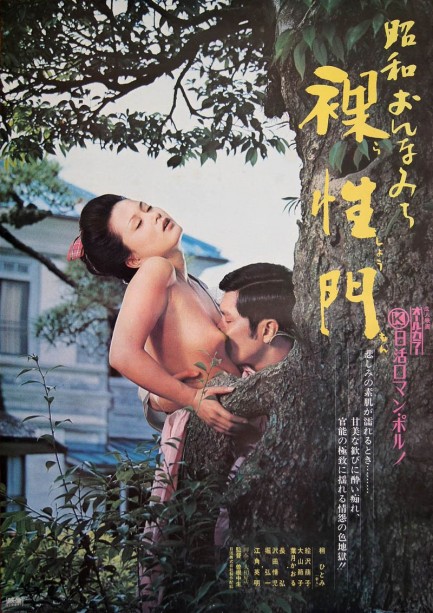
This steamy poster was made to promote the roman porno flick Showa onnamichi: Rashomon, aka Showa Woman: Naked Rashomon, aka Naked Rashomon, which starred Hitomi Kozue and Elmei Esumi. In case you're wondering, “rashomon” was an ancient city gate located in what is now Kyoto, which makes the title rather curious, but it's borrowed from the 1950 Akira Kurosawa period drama Rashomon, which used the gate locale as a central element. That film was famous for its four characters narrating four versions of the same terrible event.
Does Naked Rashomon have anything to do with city gates or multi-p.o.v. narratives? Well, no. When a nobleman's wife can't bear him a son, he turns to a mistress to get the job done and she gives birth to twins—a boy and a girl. The boy will be the nobleman's heir; but he orders the mistress and infant daughter killed. The bodyguard responsible for this heinous task instead secretly sends the pair away. Two decades later the daughter has grown up to be a beautiful woman and, unaware of her true ancestry, crosses paths with her father and twin brother with shocking results.
It's a bizarre premise but a good movie, considered one of director Chûsei Sone's best. And it has Pulp Intl. fave Kozue in a double role as both the mistress and her grown daughter, which can only make matters better. Compared to most Nikkatsu Studios roman pornos this one qualifies as high art, which means it's not just recommendable, but is also a reasonable place for the uninitiated to dive into the genre. But you might not want to dive too deep. It gets pretty gnarly down there. Showa onnamichi: Rashomon premiered in Japan today in 1973.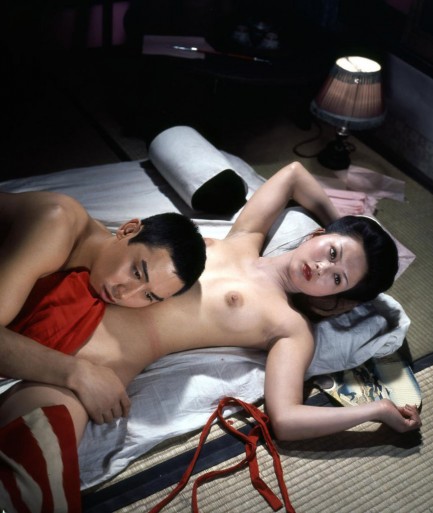
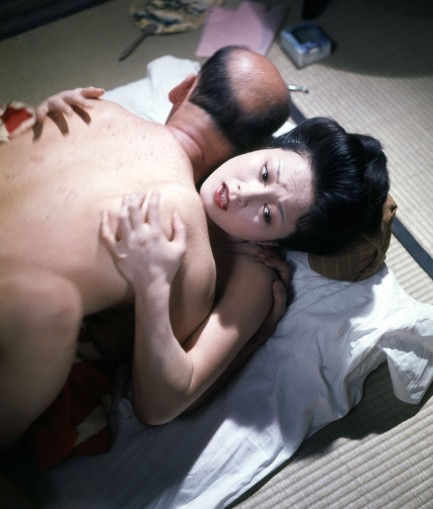
| Vintage Pulp | Oct 31 2014 |

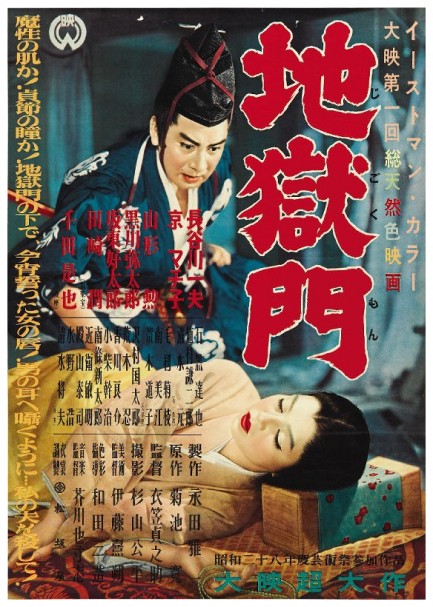
Above is a poster for Teinosuke Kinugasa’s masterwork samurai drama Jigokumon, which was known in English as Gate of Hell. It was the first Japanese film shot in color, via the process Eastmancolor, which was a leap beyond three-strip Technicolor, and one that makes Jigokumon blaze like a supernova. The story, from a play by Kan Kikuchi, concerns a Heian-era samurai named Moritoh whose bravery during a battle is rewarded by his lord granting him anything he desires. What he desires is the Lady Kesa. Problem is she’s married to another samurai. The lord mistakenly grants Moritoh’s wish, which is soon revealed to be impossible, but Moritoh resolves to have Kesa anyway, by any means necessary—trickery, bribery, even all-out murder. What develops is not just a thriller about entitlement and lust, but a meditation on honor, love and, especially, social strictures.
Jigokumon was a sensation. A hit in Japan, it was a revelation to foreign audiences. It took home the Palme d’Or from the 1954 Cannes Film Festival, a 1955 special Academy Award for Best Foreign Language Film, an Oscar for Best Costume Design in a color film, and more prestigious nods. Along with Akira Kurosawa’s Rashomon, Kimisaburo Yoshimura’s Genji Monogatari, Kenji Mizoguchi’s Ugetsu Monogatari, and other films from the early 1950s, it marked the emergence of Japanese cinema onto the international scene. We’ve posted a large group of screen grabs below—perhaps overkill, considering how many—but the film just looks so damn good and the shots are so spectacular that we couldn’t help ourselves. Jigokumon premiered in Japan today in 1953.
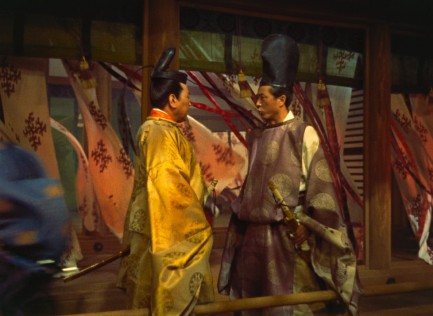
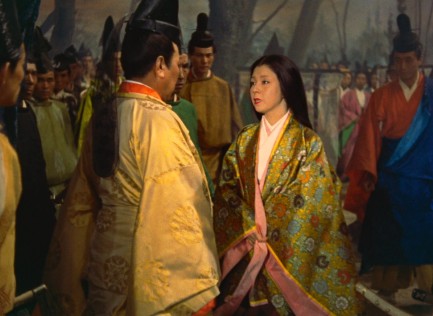
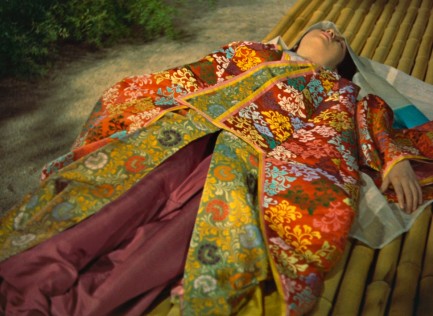
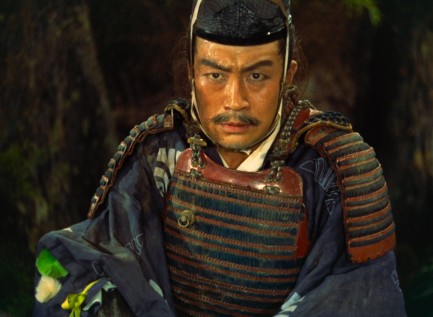
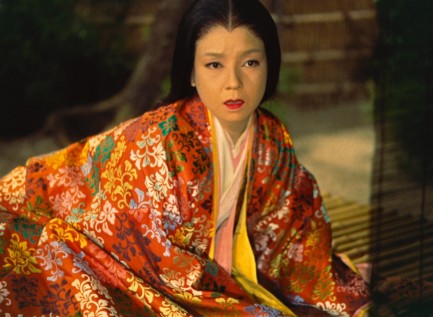
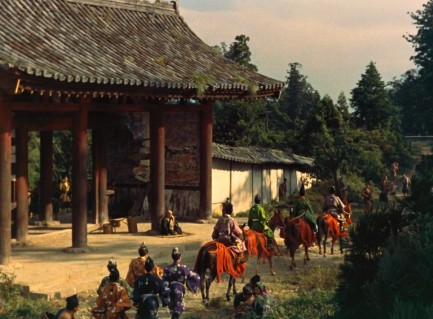
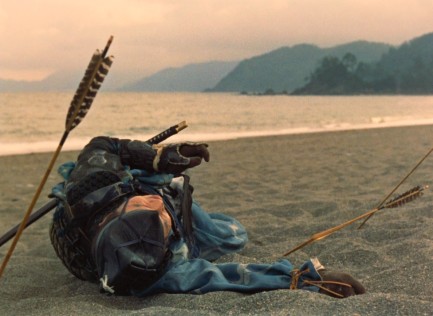
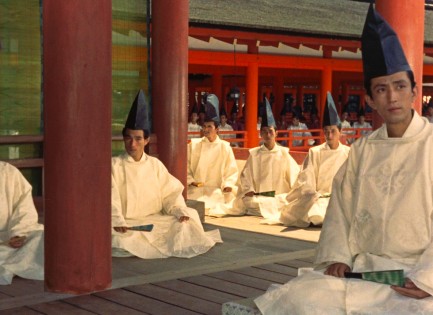
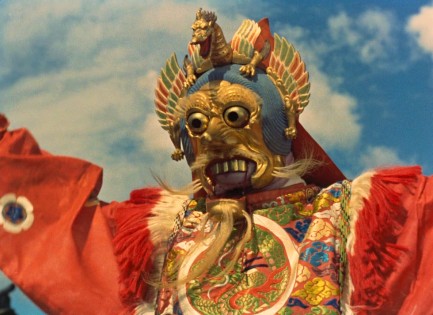
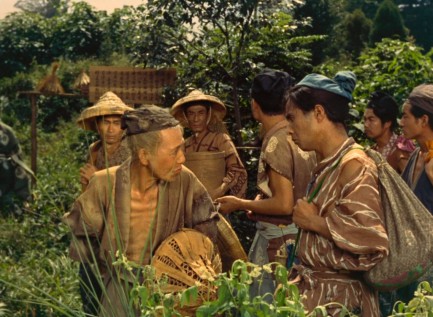
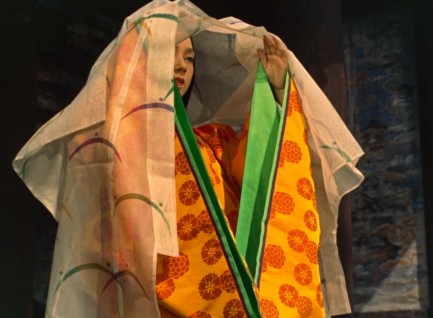
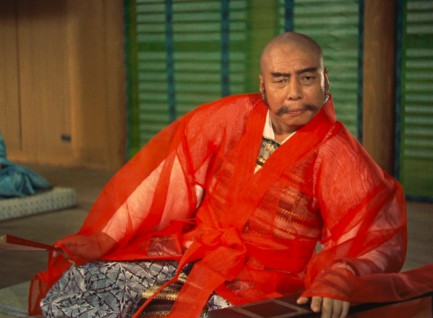
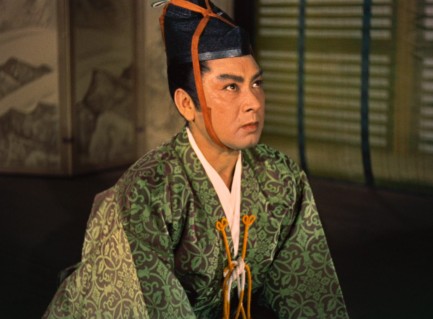
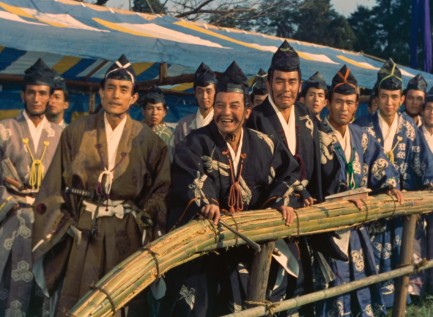
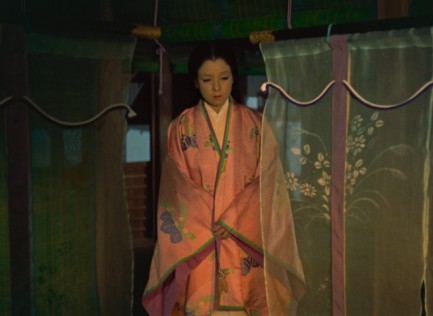
| Vintage Pulp | Apr 3 2014 |

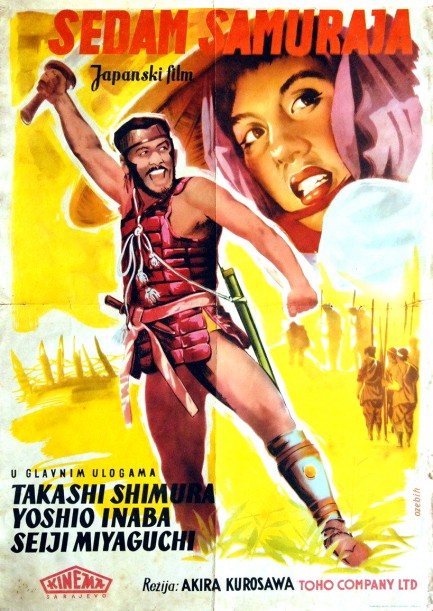
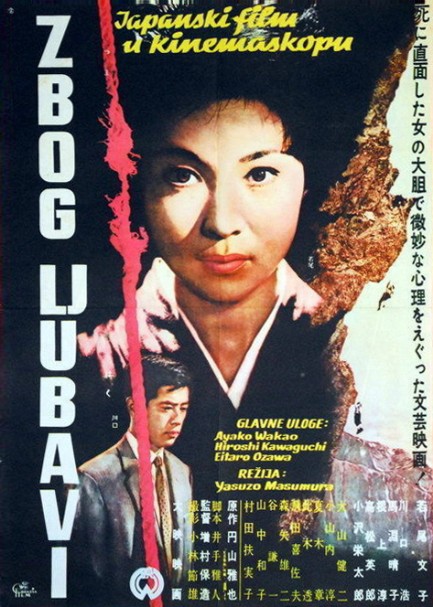
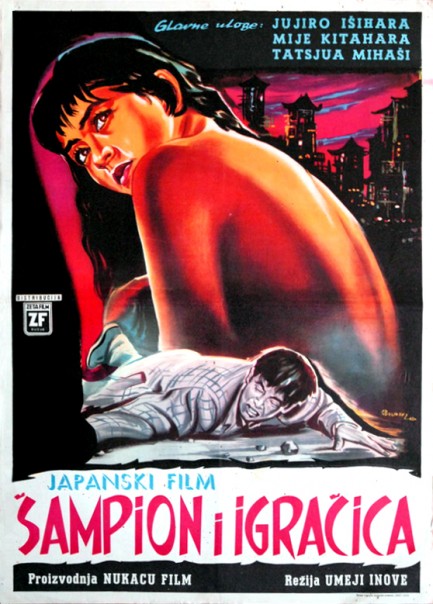
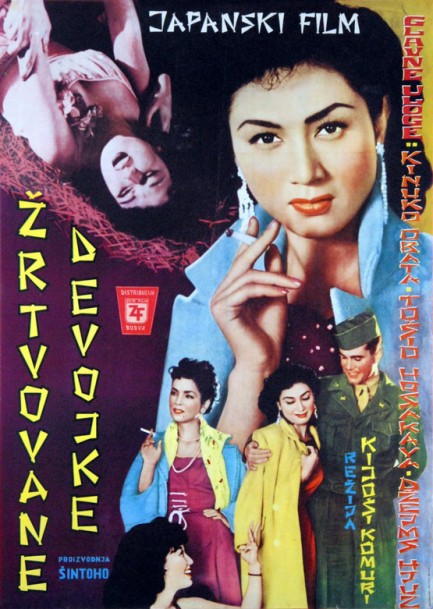
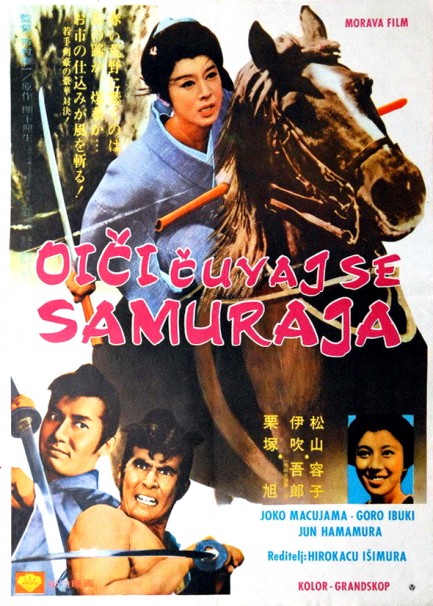
| Intl. Notebook | Jan 24 2014 |

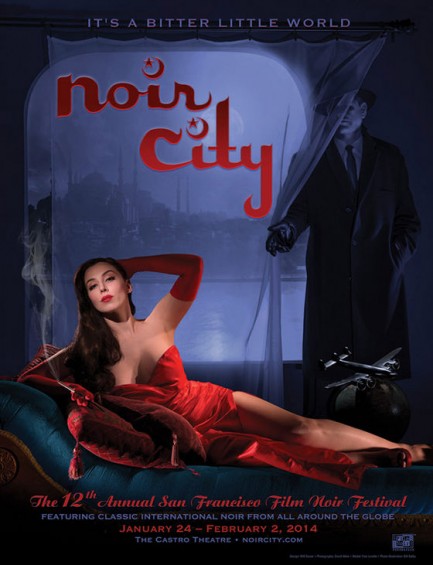
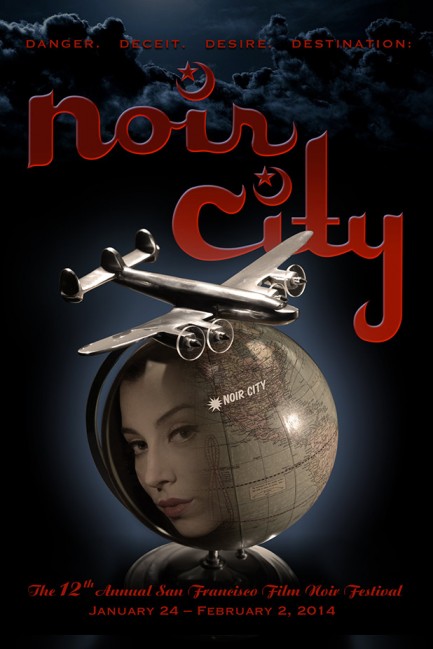
Living overseas is sometimes bittersweet. While the people, the food, the bars, the beaches, the lifestyle, and a hundred other aspects are wonderful, there are no film noir festivals (and no decent pizza, but that's another story). Anyway, today we’re sad not to still be living in the San Francisco Bay area because it’s the first day of the Noir City Film Festival. Ironically, this year’s version, the twelfth in the series, looks toward other countries and includes movies set in France, Britain, Mexico, Singapore, Macao, and more. The films, which screen at San Fran’s Castro Theatre, include The Third Man, Akira Kurosawa’s Yoidore tenshi, aka Drunken Angel, Jules Dassin’s Du rififi chez les hommes, aka Rififi, and two dozen other films. All in all, a great collection. The photoillustrated poster art above (the first is the official promo and the second is the teaser that came out last year) is also pretty nice, though not up to the standard of previous years. But you can decide that for yourself—we’ve shared the entire run of Noir City posters and you can see those here.
| Vintage Pulp | Aug 25 2012 |

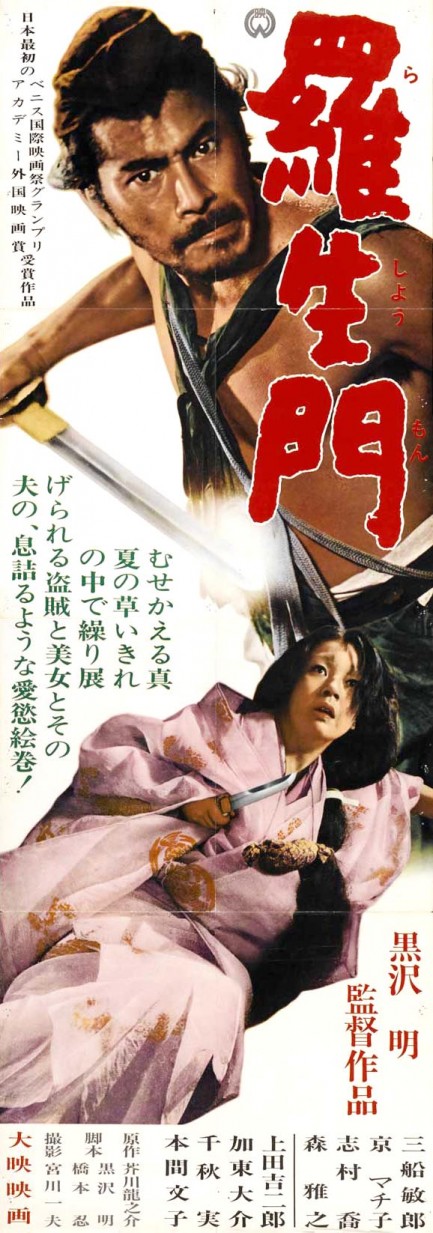
Above, a poster for Akira Kurosawa’s seminal samurai movie Rashomon, with Toshirô Mifune, Machiko Kyô, and Masayuki Mori. We could tell you this flick is great, but there’s no point. Information abounds, written by people far more expert than us, and it all says the same thing—this is one of the top films ever made. It was admired in its time, winning the Leone d’Oro at the 1951 Venice Film Festival and 1952 Academy Award for best Foreign Language Film, and it has weathered the last sixty-two years proudly. Watch it. Rashomon premiered in Japan today in 1950.




































































